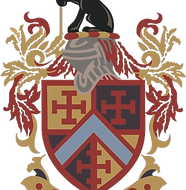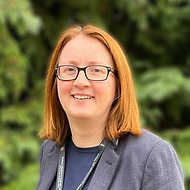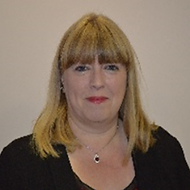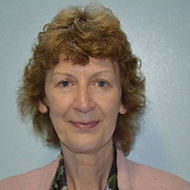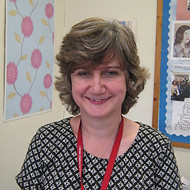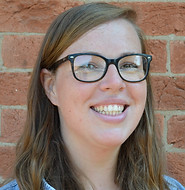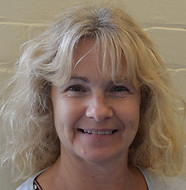SafeguardingAt Bishop Ullathorne, everyone should feel safe. We will do everything that we can to make sure that students are protected and happy. This student friendly policy is to help you understand what safeguarding means, to help you decide what could be a problem and to explain who you should talk to. |
What is Safeguarding?
Safeguarding is the action that is taken to promote the welfare of all our young people and to protect them from harm.
Safeguarding means: protecting children from abuse and maltreatment. Preventing harm to children's health or development. Taking action to enable all children and young people to have the best outcomes.
Staff at Bishop Ullathorne agree that they should:
- Protect you from harm.
- Make sure that nothing stops you being healthy or developing properly.
- Make sure that you are safely looked after.
- Make sure that you have the best life chances and can grow up happy and successful.
Staff at Bishop Ullathorne agree that to make sure they look after you they will:
- Make sure the school is a friendly, welcoming and supportive place to spend time in. Somewhere you want to be.
- Be there for you to talk to if you need to and know who to ask for help.
- Give you safe messages in your lessons to help you learn how to look after yourself both online and in the real world.
- Have all the right rules in place to help look after you. They will follow these rules all of the time (these rules are called policies).
ABUSE
When someone hurts you, it can be called abuse. This is when someone does something to you that is harmful, unpleasant or painful like:
-
If someone deliberately hits you, hurts you, injures you or humiliates you in different ways.
-
If someone says or does something that makes you feel bad about yourself or hurts your feelings, which makes you feel scared, sad, upset or frightened.
-
If someone doesn’t take proper care of you so you feel abandoned, lonely or neglected. You might not be able to eat or wash regularly, or you might not be able to come to school every day or on time
There are four types of abuse:
1. Physical Abuse – hitting, smacking, shaking, throwing, burning, biting etc.
2. Sexual Abuse – be aware this doesn’t always mean actually touching a child. It could be someone making you watch things to do with sex or encouraging you to act in a way that makes you feel uncomfortable.
3. Neglect – this means things like not providing meals or warmth or clothing. Or perhaps not taking you to the doctors when you need to go. There may be lots of different reasons why a child is neglected and it is really important that we know so we can help.
4. Emotional Abuse – This means when someone upsets you or makes you feel bad. If someone in your family says horrible things to you and makes you feel sad and worthless.
Abuse is never ok and if you are being or have been abused you must remember – it is not your fault.
You must always tell someone and they will help it to stop.
In and out of school
All of the staff at Bishop Ullathorne will do our best to make sure the building is safe for you to learn and spend time in. We will make sure that we know who everyone is in school by asking visitors to sign in at reception. You will always know who a visitor to the school is because they will have signed in at reception and will be wearing a visitor badge around their neck. If you see someone in school who is not wearing a badge and is not with a member of staff you should ask them politely who they are and ask them to make their way to the gatehouse. If you do not feel confident enough to do this please let a member of staff know straight away.
The building, outside areas and fields will be as safe as they can be for you so that you don’t hurt yourself, although accidents can happen if you are not careful. Staff will look after you if the fire alarm goes off and you should know what to do and where to go. When you leave school to go on a trip, the staff will make sure they can keep you safe wherever you are going.
What we will do
At Bishop Ullathorne, we will help you in the following ways:
- We will do our best to spot if there is a problem. All of the adults in school have had training in this.
- We will work with other people (including the people at home) to help protect you and solve any problems you may have.
- We will listen to you if you want to talk to us and need our help. We will always take you seriously.
- We will support and encourage you and will respect your wishes and views. You can talk to any member of staff, but you should know that there are a number of staff who are responsible for making sure you are safe and well cared for, and they are listed below.
It is important that you know:
- It is never your fault if someone is hurting or abusing you.
- There is always someone who can help you.
- If someone is hurting you, they might also be hurting someone else so it is important that you tell someone to make it stop.
- Every child should enjoy their right to a happy and safe childhood.
Do not be scared to tell someone straight away - we will always listen.
Any disclosure made will be passed to Mrs Boyle who is the designated safeguarding lead at Bishop Ullathorne.
How can you keep yourself safe?
Bullying - If you think a student or an adult is bullying you or someone you know, you must tell your teacher/parent/carer or someone you can trust as soon as you can. It won’t stop unless you do. Bullying should not be kept a secret.
Saying strange things to you - If a student or an adult says something to you, or you hear something that you do not like or that upsets you, you must tell your teacher/parent/carer or someone you can trust.
Touching you -Your body belongs to you and not to anyone else. This means all of your body. If someone touches you on a part of your body you do not like, it is NOT OK. You must tell your teacher/parent/carer or someone you can trust as soon as you can.
Hitting, punching or smacking you - If a student or a grown up hits, punches or smacks you or hurts you in any way, you must tell your teacher/parent/carer or someone you can trust as soon as you can.
Presents - Presents are a lovely thing to get, but you should not take a present from anyone without checking with your parents first. Most of the time it will be ok, but sometimes people try and trick young people into doing something by giving them presents (like sweets, money or phones) This is sometimes called a bribe. If it does not seem right, tell someone as soon as you can.
On the computer or your phone - Computers and mobile phones help us all to share things and talk to our friends or family, but they can also make it easier for bullies and other people that want to hurt you to get close to you. It is important to know how to keep yourself safe on your computer, your phone and on websites. Bishop Ullathorne School has an e-safety policy which is there to protect you. If you are unhappy with any comments or photographs you’ve seen on your computer or mobile then you can also contact www.thinkuknow.co.uk as well as adults in school.
What will you learn in school that will help you to keep safe?
During your time at Bishop Ullathorne School you will be taught CPSHE lessons once a week. In your lessons you will learn about lots of important ways that you can keep yourself safe and healthy from mental health issues, keeping safe, online safety, exploitation, body image, drugs and healthy lifestyles to name a few. Every student will also have assemblies and retreats which will also focus on keeping you safe at key times
People in school who can help you:
|
Miss Hully |
Mrs Boyle |
Year 7
|
Ms Maxwell |
Miss Greenway |
Year 8 & 9
|
Mrs Jeremiah |
Mrs Rosner |
Miss Howe |
Year 10 & 11
|
Miss Durkan |
Mrs Marston |
Year 12 & 13
|
Mrs P Casey |
Mrs F Grearson |
Mrs T Brazil |
|
Mrs Salter |
Miss Stundon |
Miss Moore |
Coventry Prevent Team
Coventry as a city have Prevent specific resources to safeguard our communities.
The Coventry Prevent Team are an all-age early intervention service across the city of Coventry who work to safeguard people from being radicalised, supporting extremist groups or becoming involved in terrorism.
They offer a range of training, policy guidance and support to partner organisations and community groups. Their key aim is to help people understand the local risks of radicalisation and to provide them with the knowledge and resources to build resilience within their area.
The Channel programme supports individuals at an early stage to disengage from all forms of extremism and terrorism. This is achieved through working with the individual to create and implement a bespoke multi-agency support plan.
PREVENT COORDINATOR
The Prevent Coordinator is responsible for leading the coordination, referrals, programme management and communications of all aspects of Prevent and advising on the work in Coventry.
Contact details: Manjeet Pangli - manjeet.pangli@coventry.gov.uk
COVENTRY PREVENT EDUCATION OFFICER
The Prevent Education Officer role is very much one of delivering Prevent priorities locally and driving support for education settings.
This is by:
■ providing advice and support to schools on their compliance with the requirements of the Prevent statutory duty as set out in the Prevent Duty guidance
■ embedding Prevent in the curriculum, increase pupils’ resilience to radicalisation, and promote fundamental British values
■ offering advice, support and deliver training to education settings
■ developing and maintain effective working relationships with the full range of Prevent partners
For advice or support please contact:
Viv Brosnahan - viv.brosnahan@coventry.gov.uk
PREVENT SUPPORT FROM POLICE PREVENT OFFICER’S EASTERN PREVENT TEAM
Eastern Prevent Team (Coventry/Solihull) currently have Six Prevent Officers whose primary safeguarding role is to prevent vulnerable people becoming involved in violent extremism of all kinds.
The team are comprised of a Sergeant and five Constables who are Police Prevent Officers appointed to help tackle terrorism through building strong links with local communities thus making them resilient to the extremist narrative.
They work alongside Neighbourhood Policing Teams to support local citizens, community groups, educational establishments and partner organisations with understanding issues around all forms of extremism and can help guide practitioners with supporting materials (toolkits, workshops and presentations).
All referrals need to be made to the below email address promptly:
CTU_GATEWAY@west-midlands.pnn.police.uk
The team can be contacted on the below numbers for advice if needed:
Email: d.woolley@west-midlands.pnn.police.uk
Tel 101 ext 831 3039 / 07554 436724
ONLINE TUTORIALS
PREVENT DUTY TRAINING FOR EDUCATION
Prevent Duty Training
PREVENT – OTHER ASSOCIATED RESOURCES
PREVENT – Link to the Prevent Duty – Updated 21/4/2021
Revised Prevent duty guidance: for England and Wales - GOV.UK (www.gov.uk)
Governance Handbook and Competency Framework 8/10/2020
Governance handbook and competency framework - GOV.UK (www.gov.uk)
Prevent Radicalisation and Extremism by Acting Early
ACT Early | Prevent radicalisation
When to Call the Police – Guidance for Schools and Colleges
When to call police guidance for schools and colleges.pdf (npcc.police.uk)
Counter Terrorism Policing – Latest News
News | Counter Terrorism Policing
Making a Prevent Referral Form – Coventry Prevent Team
Prevent referral form – Coventry City Council
Channel and Prevent Multi Agency Panel Guidance 22/2/2021
Channel and Prevent Multi-Agency Panel (PMAP) guidance - GOV.UK (www.gov.uk)
Prevent Multi Agency Panel Duty Guidance 2021
Channel Duty Guidance 2020
Educate Against Hate - Resources
Educate Against Hate - Prevent Radicalisation & Extremism
Protecting Children from Radicalisation – The Prevent Duty 17/8/2015
Protecting children from radicalisation: the prevent duty - GOV.UK (www.gov.uk)
Promoting British Values though SMSC 27/4/2014
https://www.gov.uk/government/publications/promoting-fundamental-british-values-through-smsc
Child Exploitation and Online Protection (CEOPS)
Reporting Online Material Promoting Terrorism or Extremism
Report online material promoting terrorism or extremism - GOV.UK (www.gov.uk)
The use of Social Media for Online Radicalisation 1/7/2015
The use of social media for online radicalisation - GOV.UK (www.gov.uk)
Keeping Children Safe in Education 1/9/2022
Keeping Children Safe in Education - GOV.UK (www.gov.uk)
UK Safer Internet Centre Resources
Appropriate Filtering and Monitoring - UK Safer Internet Centre
Filtering Provider Responses - UK Safer Internet Centre
https://saferinternet.org.uk/guide-and-resource/parents-and-carers
National Grid for Learning – Online Safety Audit for Schools
The National Grid for Learning - Online Safety Audit (lgfl.net)
ACT Early - Radicalisation on the Internet
Radicalisation on the internet/ ACT Early
Teaching Online Safety in Schools 26/6/2019
Teaching online safety in schools - GOV.UK (www.gov.uk)
The following websites give a comprehensive database of online safety resources for school leaders, teachers and parents:
London Grid for Learning
www.lgfl.net/online-safety/resource-centre?s=13
Trust Me: Childnet has created a resource designed to support teachers in exploring critical thinking online.
The ‘Trust Me’ resource www.childnet.com/resources/trust-me has been created with teachers in mind after hearing from schools that they wanted a resource which would start the conversations around extremism and extreme online content. It has a primary pack and a secondary pack with lesson plans and activities to empower teachers and young people. It challenges young people to think critically about what they see online
Content, Contact and Propaganda. It is ideal for PSHE citizenship and digital literacy with application across the curriculum www.childnet.com/resources/trust-me
CEOP Thinkuknow: The CEOP Thinkuknow website has lots of resources for all ages, including cyber-bullying, relationships, sex and the internet www.thinkuknow.co.uk
The UK Safer Internet Centre has tips, advice, guides and resources for parents, carers, teachers and other professionals on how to help keep children and young people safe online www.saferinternet.org.uk/advice-centre
360 degree safe: This is an online safety self-review tool for schools https://360safe.org.uk/ which is a free tool available to assess your school’s wider online safety provision and used by over 7,000 UK schools
OTHER REFERENCES
HO Foreign Travel Advice
https://www.gov.uk/foreign-travel-advice
Prevent Tragedies
Prevent Tragedies | Safeguarding Resource Hub
Promoting British Values through SMSC
Department for Education Consultation Hub



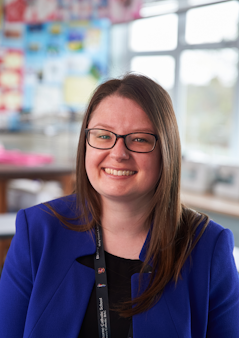
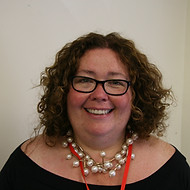
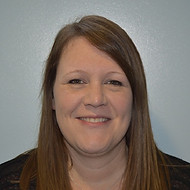
.jpg)
